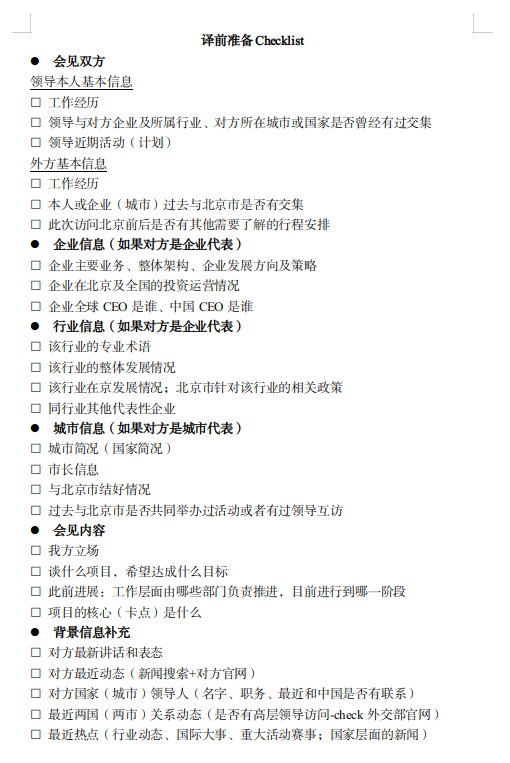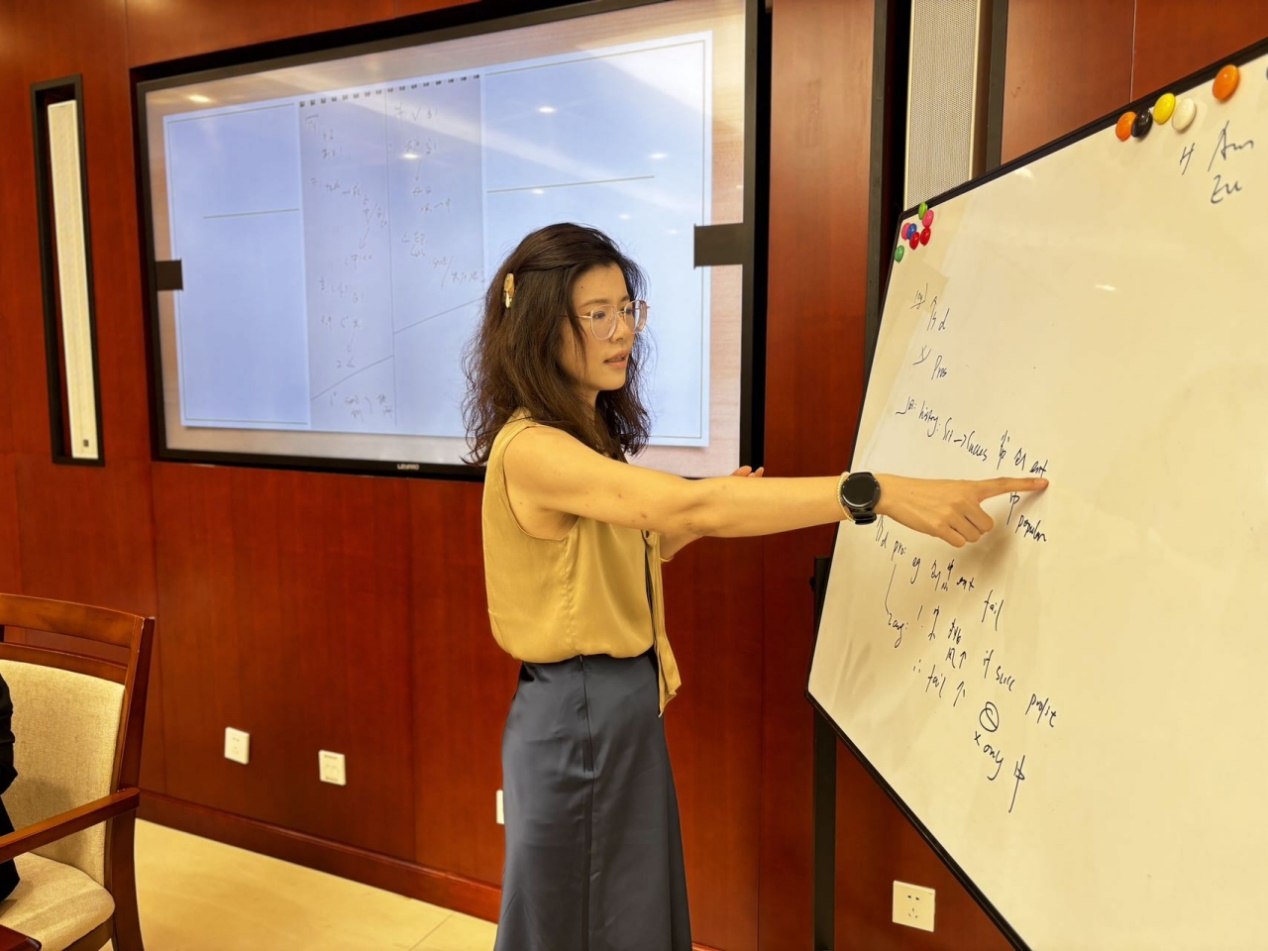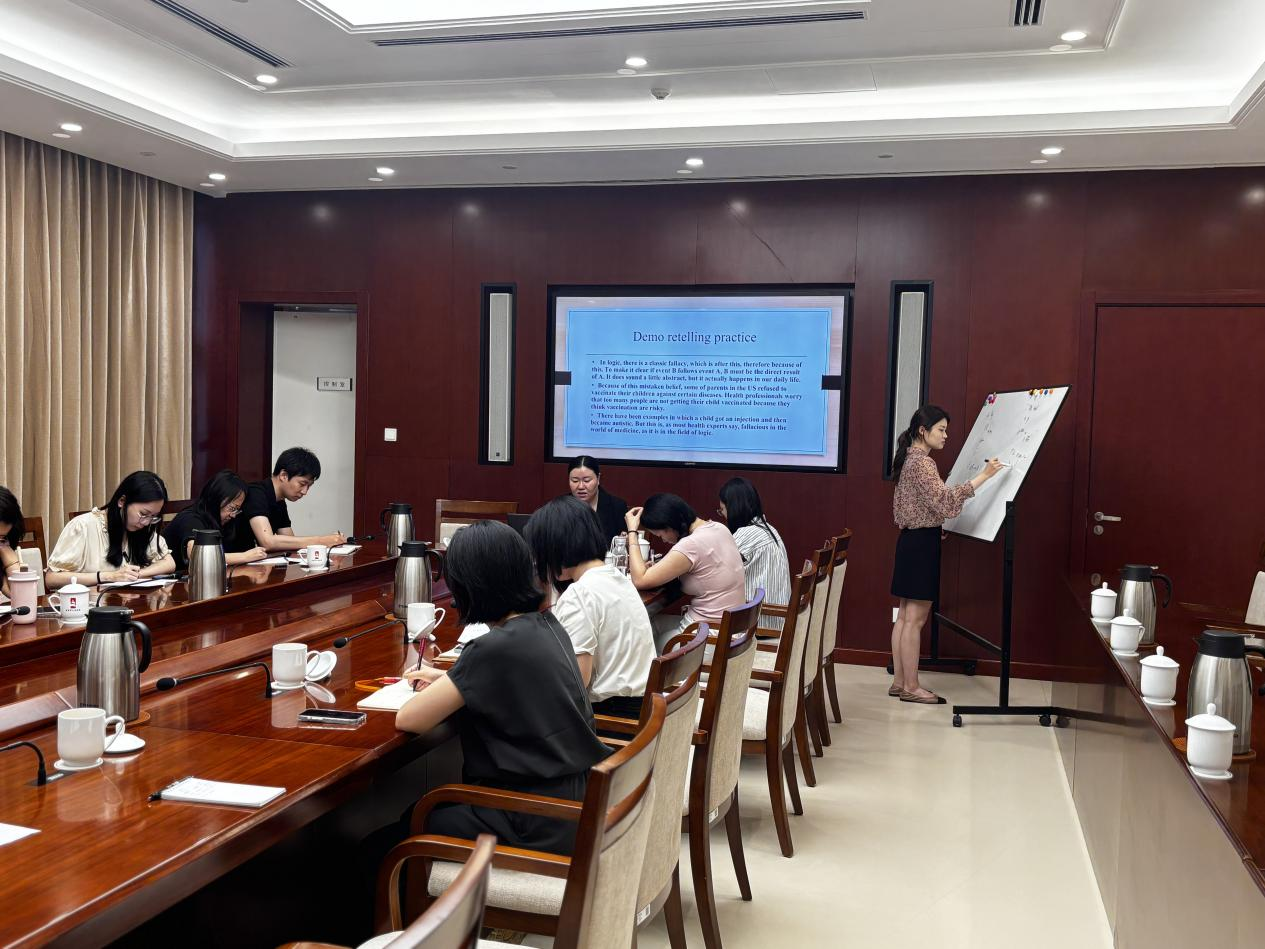As emphasized by General Secretary Xi Jinping, we should build up our capacity in international communication to tell China’s stories well, make the voice of China heard, and present an accurate, multi-dimensional, and panoramic image of China to the world.
When it comes to telling engaging stories about Beijing and China, it is crucial to prioritize international communication and improve interpretation quality in order to enhance communication effects. To help its staff enhance their language skills and better perform their duties, the Beijing Foreign Affairs Office recently organized an Experience Sharing Seminar on Foreign Affairs Interpretation. Please follow us to check what valuable tips and tricks have been shared.
About pre-task preparation
Q1 How to prepare for an interpretation assignment?
A: Take a meeting with the head of a foreign company as an example, besides basic information such as the time, venue, purpose and participants of the meeting, we should also learn about the development status and relevant policies of the particular industry in Beijing, as well as the main business, development strategies of the company and its presence in Beijing and other cities in China. On top of that, we need to get familiar with the accent of the speaker and their latest public statements, and follow the hot-spot issues both home and abroad.
Q2 What if I am unable to memorize so many things within a short period of time?
A: Interpretation calls for long-term knowledge accumulation rather than expedient measures. Efforts should be made on a daily basis. We should build up our knowledge reserve through daily learning, working and field interpretation tasks, especially in relevant areas of expertise, thus reducing the pressure on pre-task preparation.

About note-taking
Q1 What notes shall I take?
A: We take notes to alleviate our memory burden. The notes can remind us of what the speaker has said. We usually write down the logic, keywords, numbers and language structure of the speech. More notes are not necessarily more helpful. Notes should be taken based on a thorough understanding of the original speech and be complemented by our memory.
Q2 What if the speaker speaks so fast that I’m unable to take notes?
A: In such cases, we should promptly shift our focus to listening to get the main idea of the speech, and write down only key information.
Q3 Should notes be taken in Chinese or English?
A: Both options are viable. Note-taking is a personal thing. As long as the notes help interpreters convey the meaning of the original speech completely and accurately, they are good notes. We could develop our own note-taking system tailored to our habits through constant practice.

About field interpreting
Q1 What if I cannot understand the speaker with a strong accent?
A: When studying and training, we can listen to speeches with accents to get familiar with pronunciation characteristics of people from different countries. When doing pre-task preparation, we could search for the videos of the speaker’s public speeches for more targeted preparation.
Q2 Why do I get stuck in the middle of interpreting?
A: It’s quite common among beginners. Failing to fully understand the speech might be one reason. In this case, we should enhance our capability to analyze while listening. Problems with note-taking, such as illegible handwriting or using unfamiliar notations, might be another reason. In this case, more training in note-taking skills is needed. It is also important to diversify expressions in daily study or training, so as to do field interpreting with greater ease.
Q3 What should I do when encountering new words?
A: The following tips might be helpful:
Generalization: Look for a more generic hypernym;
Negation: Take a slightly indirect path to reach the same goal by interpreting from the opposite side;
Paraphrase: Try to explain with simple words if you cannot find an equivalent in the target language.

About long-term study
Q1 How to improve bilingual proficiency?
A: To improve bilingual proficiency, language learning itself is the cornerstone, and practicing listening and speaking skills is the most effective approach. When selecting listening materials, we should focus either on improving listening skills or obtaining information. News, podcasts and British or American TV series are all suitable for listening practice, and the key is persistence. For speaking practice, we can work from the following two aspects: first, reading authentic English articles; second, looking for opportunities to speak English (e.g. practicing oral skills with AI tools) to maintain familiarity with the language.
Q2 Are there any recommendations for high-quality learning resources?
A: For the listening part, English podcasts like Round Table China are good choices. For Chinese to English translation, Yizhiyoudao, en84.com, and Qiushi are recommended.
Additionally, “Beijing Foreign Affairs Translation Corpus” on the official website of Beijing Foreign Affairs Office is highly recommended. The corpus collects bilingual Reports on the Work of the Government delivered at the National People’s Congress of the People’s Republic of China and Reports on the Work of the Government delivered at the Beijing Municipal People’s Congress in recent years, with a search function available.

Going forward, Beijing Foreign Affairs Office will continue to support its staff in enhancing their interpretation capabilities through a diverse array of activities, including practice open days, expert lectures, and retrospective meetings, in an effort to serve the capital’s high-quality development and the city’s efforts to build itself into an international exchange center.


